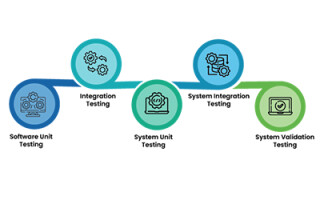Bandwidth, performance, and security: What we expect of the cloud
June 15, 2018
Blog
The cloud seems to provide us with infinite communications bandwidth, infinite performance, and total security. All these assumptions are lies.
This is part nine of a series. Read part eight here.
It is interesting to see the way the world is defining the cloud as it evolves from idea to reality. As I have begun to describe the cloud, it seems to provide us with infinite communications bandwidth, infinite performance, and total security – but if I take a critical view of these three aspects of the cloud, all these assumptions are lies. Or, to put it in a more palatable way, the benefits of the cloud are a bit over stated. Figure 1 is a depiction of how performance, bandwidth, and security relate to the various components of IoT.
[Figure 1 | How performance, bandwidth and security each relate to IoT.]
Actually, there is good news about the exaggeration of the three characteristics of the cloud:
- If we can create product that extends the “lie” another year, we can make money.
- A practical definition of “infinite” is providing a bit more than is needed.
Let me address these two observations as they apply to each of the three features of cloud computing.
Infinite bandwidth
I have had the privilege of watching the bandwidth of phone line modems advance from 60 bits per second (bps) to what it is today (I’m not even going to attempt to suggest what it is today). The 60 bps system, as I remember it, used relays. There was a day when it was predicted the phone system would be digital rather than analog. There was a time when a 2400 bps modem was high speed. Later to be replaced by 9600 bps, then 14.4k bps, then 28.8k bps. Around that time, there were stories about things like DSL and cable modems that amazed me, but we are now well past all of those advances and into more sophisticated techniques, giving us more bandwidth than we could ever use, right? What we seem to be discovering is that we can think about ways to use bandwidth faster than we can create it. The good news is that we are driven to expand the bandwidth of communications and the users of that bandwidth are more than willing to pay for it. And, as long as the industry provides just a bit more than everyone needs, we will continue to make money.
Infinite performance
One of the first DSPs I was associated with was the TMS32010. It could do 2.5 million multiplies per second. As a result, it, along with several other contemporary DSPs could create synthetic speech, audio and some imaging functions. Basically the DSP began to change the way we processed interesting signals. As the kinds of signals in which we were interested demanded higher performance, the generations of DSPs were adequate to satisfy the needs. However, we now appear to be exhausting the capability of digital processing to meeting our demands. As much as I worry about our not being able to keep ahead of the demand, I am confident that we will find a way. Remember, there is money to be made if we can keep ahead of the demand – and that is what has driven the semiconductor industry for the last five decades. I don’t see it changing.
Total security
This aspect of cloud computing is of the greatest concern of the three. It is vital that our individual and corporate privacy and security are assured. Unlike the other two, security isn’t as simple as outpacing the demand for it with new solutions. The more we can put into a package you can’t get into, the more secure it becomes. Putting more capability at the sensor and the aggregator will be more protective than releasing every decision to the cloud to make. That’s where System-in-Package can help. These tiny multi-chip electronic devices look like a single integrated circuits (IC) and can handle much of the IoT system decisions away from the cloud. Privacy and security will always have value, and will drive innovation.
Now for a few more questions for you to think about and respond to us with your answers:
- What was the speed of your first (digital) communications system?
- What year did you have an internet link to your home? What was the technology: Voice band modem, DSL or Cable?
- When did you first store personal information on a server outside of your home?
- Do you have a favorite cloud computing horror story? If so, tell us about it.
- Will we ever resolve the issue of security?




